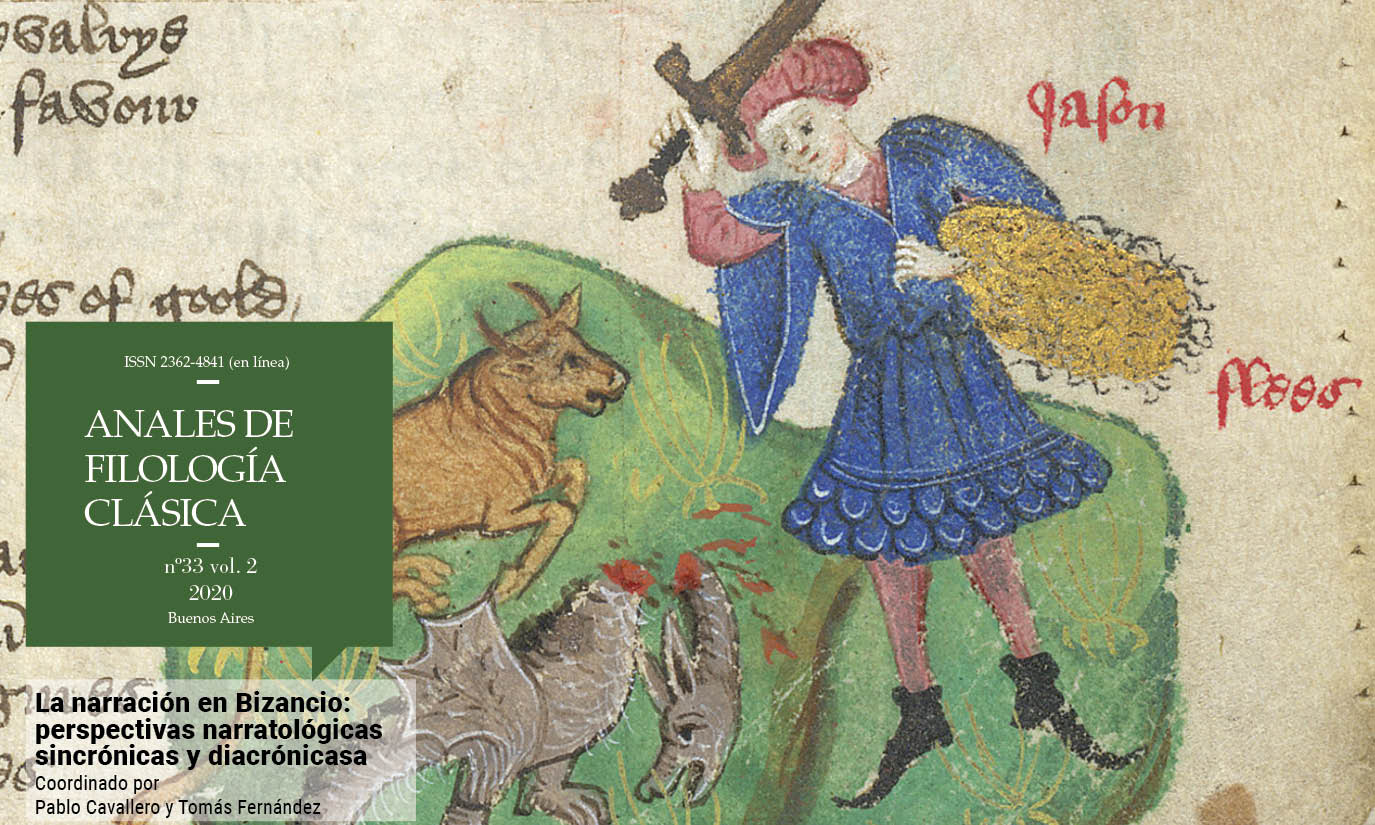Constructing Order through Narration: Narrator and Narratees in George of Pisidia’s Bellum Avaricum
Abstract
The object of the paper is to analyse the roles of the narrator and the narratees in George of Pisidia’s Bellum Avaricum. The article puts forth the hypothesis that through the hierarchic relationship of narrator and narratees, the poet aims at mirroring the ideal form of kingship under the Christian emperor Heraclius (reg. 610-641 C.E.) both on a secular and spiritual level. Therefore, the focus will lie on the following three questions: How does the narrator represent himself? How does he address his narratees and communicate with them? And what is his ideological goal in establishing and structuring the narration? By viewing the poem particularly with regard to its narrative techniques of rhetoric and panegyric, the analysis promises to provide a deeper insight into the socio-political and spiritual concepts of Byzantium at the beginning of the 7th century.Downloads
Download data is not yet available.
Published
2020-11-30
How to Cite
Kröll, N. (2020). Constructing Order through Narration: Narrator and Narratees in George of Pisidia’s Bellum Avaricum. Anales De Filología Clásica, 2(33), 75-86. https://doi.org/10.34096/afc.i33.10017
Issue
Section
Artículos
Los autores/as que publiquen en esta revista aceptan las siguientes condiciones:
- Los autores/as conservan los derechos de autor y ceden a la revista el derecho de la primera publicación, con el trabajo registrado con la licencia de Atribución-CompartirIgual 4.0 Internacional (CC-BY-SA 4.0) de Creative Commons, que permite el uso comercial de la obra y de las posibles obras derivadas, la distribución de las cuales se debe hacer con una licencia igual a la que regula la obra original.
- Los autores/as pueden realizar otros acuerdos contractuales independientes y adicionales para la distribución no exclusiva de la versión del artículo publicado en esta revista (p. ej., incluirlo en un repositorio institucional o publicarlo en un libro) siempre que indiquen claramente que el trabajo se publicó por primera vez en esta revista.
- Se permite y recomienda a los autores/as a publicar su trabajo en Internet (por ejemplo en páginas institucionales o personales) antes y durante el proceso de revisión y publicación, ya que puede conducir a intercambios productivos y a una mayor y más rápida difusión del trabajo publicado (vea The Effect of Open Access).
En ningún momento se cobrará monto alguno al autor por la publicación en esta revista.







